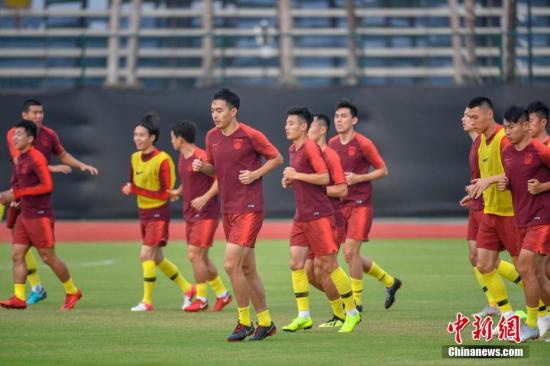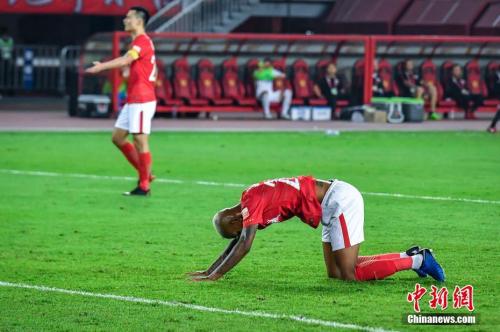BEIJING, Dec. 21 (He Li) After all the rumors and tireless rumors, China’s new football policy finally landed on the Huangpu River on the 20th. Compared with the previous policy, the New Deal has set up "four hats" to limit investment, while foreign aid is not affected by wage limits; U23 policy has changed slightly, but foreign aid policy remains unchanged; Between many changes and invariance, the "good intentions" and "precise policies" in system design are worth pondering.
"Four hats" and the value of foreign aid: You should have your cake and eat it.
The core and focus of the New Deal fell unexpectedly on the "four hats" that restricted the club’s investment. According to the regulations, in 2019, the spending limit of the Super League will be capped at 1.2 billion yuan, the capital injection limit of the club will be 650 million yuan, and the loss limit will be set at 320 million yuan. These three investment restrictions will be reduced again in the next three years until 2021.

Data map: The value of the national football team will encounter "diving". China News Service reporter Luo Yunfei photo
The salary of domestic players is also limited, and the highest standard should not exceed 10 million, while the international players participating in the Asian Cup and World Cup qualifiers can be adjusted by 20% on this basis. At the same time, foreign aid is not within the wage limit.
In other words, the New Deal still leaves room for the club to introduce and invest. However, the invisible "soft salary cap" is still working under the restriction of expenditure: how to choose foreign aid investment and how to balance the salary ratio of the team is the "second battlefield" for the management of each club to play.
The floating salary of international players also responds to the fans’ doubts about the "work" of the international national team and the "contribution" of the club. Playing for the country no longer stays in an honor, but can directly bring real money and silver benefits.
This kind of "hook edge" and "blank space" shows the ambition of the Football Association to "have both fish and bear’s paw": on the one hand, it is necessary to reconstruct market standards, standardize players’ worth and reasonable investment; On the other hand, there is room for capital competition. Want to maximize the attention of the league brought by big-name foreign aid, while reconstructing the market format of the Super League.
Fine-tuning registration system and foreign aid policy: down-to-earth and looking up at the stars
Another interesting adjustment of the New Deal is the fine-tuning of the access system of the Super League, which increases the requirements for U21 players and women’s football teams.
The New Deal stipulates that, under the condition of keeping the original policy of U23 players’ appearance unchanged, the teams applying for admission to the Super League and the Chinese League should have U21 players trained by the club in the registration list, and these two players must have been from the youth training of the club and participated in the competition for more than 3 years.
Although it is a "fine-tuning", it is enough to suppress the impetuous heart of some clubs. Under such standards, the possibility of attracting young players by "burning money to dig people" is almost blocked.
After the announcement of the U21 access policy, I am afraid that many Chinese Super League teams will fall into the "U21 player shortage" again, and the plan of renting young players is no longer realistic, which will undoubtedly "force" Chinese Super League teams to engage in youth training in a down-to-earth manner. Although the requirements for women’s football teams are not rigid standards for the time being, they will more or less narrow the huge contrast between women’s football performance and treatment.
At the same time, the foreign aid policy is consistent with last season.
There is no denying that the popularity of the league in the past few seasons has something to do with joining the big names. But they also squeeze the living space of local players. Under the multiple constraints of the New Deal, although there is still the possibility of big-name foreign aid joining, it is certain that the situation of "bright stars" in the past is difficult.
The retention of foreign aid policy also means that the days of Asian foreign aid in the Super League are not easy. In fact, in the context of expenditure restrictions, there is no advantage in the cost performance outside Asia. This means that domestic players will have more space. Referring to the outbreak of domestic players in CBA league in recent years, the New Deal pursues that there will be more domestic players shining on the football field.
The intention of the policy is to see not only foreign stars when fans "look up at the stars" in the Super League under the dual effects of U21 and foreign aid policies.
Timely control and intervention in the market: it will take 10 thousand years to seize the day
There is no doubt that this policy is directed at the virtual fire of the "Jinyuan Football" in the Super League in the past few years. According to the data provided by the Football Association, seven years ago, Evergrande invested 500 million yuan a year, which was enough to dominate the Super League. Seven years later, Evergrande invested about 2 billion yuan a year, which was just the level of championship. As the terminator of Evergrande Dynasty, since Shanghai Port Group entered the team, the total investment has exceeded 6 billion, with an average annual investment of nearly 2 billion. Among the AFC Champions League teams, this year’s investment has also exceeded 1 billion.
Of course, capital investment is indispensable for professional leagues, but the premise is that the market environment is standardized and reasonable. For example, Li Yuyi, executive vice chairman of China Football Association, said at the meeting: "Playing a league is not like burning money. One club invests 2 billion yuan and the other 300 million yuan. How to play this game?"
In a disorderly market, if the capital is allowed to flood, it will inevitably form a monopoly. When the whole league becomes a game for a few capitalists, and when the input-output ratio is not within a reasonable range, the second and third ladders who can’t see the return have to choose to control their investment until they quit the game. Such a vicious circle is certainly not what China football hopes.
In fact, many clubs, including Super League First Group, have long complained about the huge "salary expenses", but in order to avoid falling behind in the competition, they can only bite their teeth and carry them to death.

Data Map: Overflow of capital in a disorderly market will lead to a vicious circle of the league. China News Service reporter Chen Yushe
Against the criticism of "interfering in the market", the Football Association has taken measures to regulate the football environment, only because the current environment can only be rectified from top to bottom. Ten thousand years is too long, seize the day. Expanding the value of the New Deal to eradicate China football is a big step; It seems more reasonable to release it to the chaos in the current domestic football market.
Let’s just show some patience and treat the Football Association’s New Deal with a positive attitude. In the final analysis, the problem of football in China is not formed in a short time, and it is impossible to make a quick decision. Therefore, any strategy that tries to "reverse Gan Kun" quickly will be labeled as "run amok". Just as a lie proves a lie, it can only be a lie. However, it is much more reasonable to look at the Football Association’s strategy with staged demands. Just like the answer to the last big question in the exam, it is all pushed out step by step.